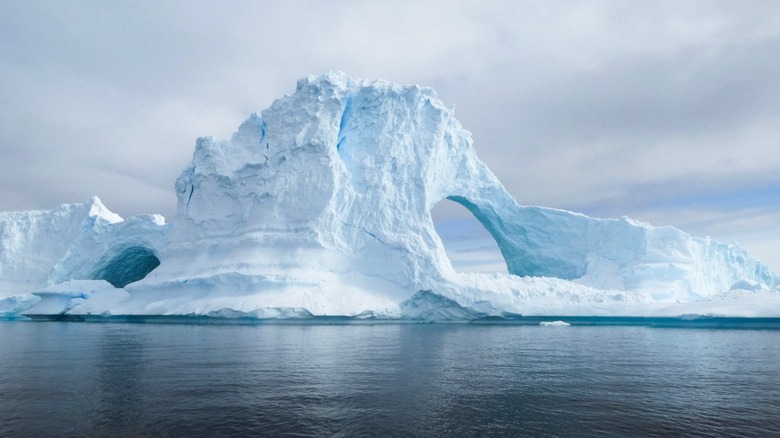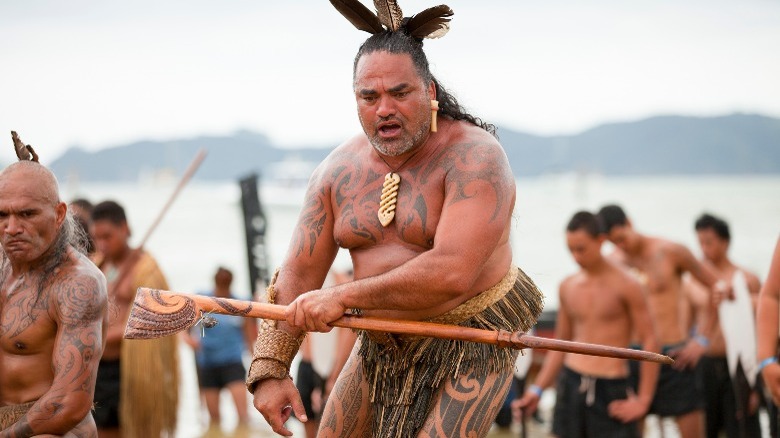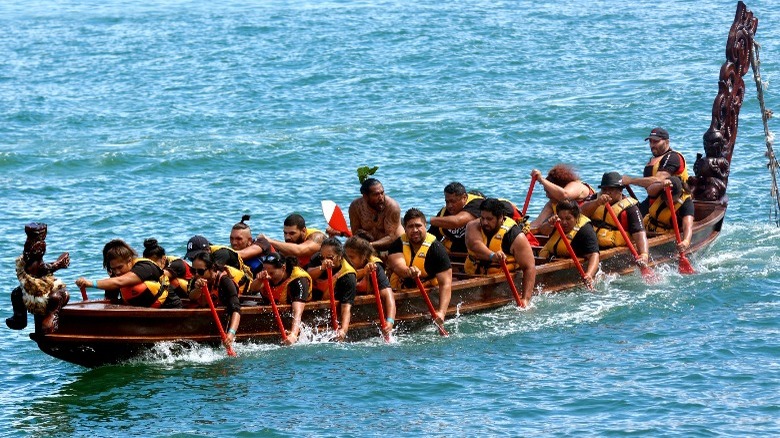Europeans May Have Been A Couple Centuries Late To 'Discover' Antarctica
It is human nature to be curious and explore our surroundings. Over the centuries people from across the world have chased adventure by traveling to unknown destinations. By the early part of the 20th century, it seemed that there were few places left to be discovered. There was one frontier that had yet to be fully explored: the continent of Antarctica, home of the South Pole (per Britannica).
According to National Geographic, Antarctica was first discovered in January of 1820, but there is debate about who "discovered" it first. To some, it was the Russian expedition led by Fabian von Bellingshausen, while others give the credit to the England's legendary Captain James Cook. The two countries sent exploration parties around the same time who essentially ended up in a race to see who could find Antarctica first. Both parties spotted land within days of each other — thus the controversy. However, new research has indicated that those European explorers may have been more than 1,000 years behind someone else who got there first.
The Māori were seafaring people
The Māori are the indigenous people of the island nation of New Zealand (per World Atlas). They are believed to be descendants of Polynesians who immigrated to the country from neighboring islands as early as A.D. 950. Today they are well known for their unique culture and traditions, particularly their traditional dance known as the Haka (a performance is posted on YouTube) and their intricate facial tattoos (via World History Encyclopedia).
This group of people have a history that dates back centuries. As they immigrated to New Zealand, it is fair to assume that the Māori were also seafaring people who were not afraid of exploration. This is supported by Smithsonian Magazine, which tells us that the early ancestors of the Māori traversed open seas via canoe and settled many of the islands across the Pacific. Recent studies of Māori sailing history have revealed that their voyages went beyond the islands in the Pacific and actually describe the continent of Antarctica.
Hui Te Rangoria may have discovered Antarctica 1,000 years earlier
In 2021 research was published that gave the credit for discovering Antarctica to Polynesian Māori sailors (per the Journal of the Royal Society of New Zealand, posted at Taylor & Francis Online). More incredibly, there is evidence to support the idea that they didn't just beat the Europeans there by a few days. They may have been there more than 1,000 years before Cook and von Bellinghausen.
Scientists and researchers in New Zealand have studied the oral traditions, carvings, and literature of the Māori people and repeatedly come across the name Hui Te Rangiora. According to their records, this Polynesian chief, who was a native of the Cook Islands, is reportedly the first man to make it to the "frozen sea" and to spot Antarctica. There are many stories filled with lots of specifics and many details of his legendary voyages, including references to snow. While there isn't any physical proof that Hui Te Rangiora actually set foot on Antarctica, the history of the Māori suggests that it is still a very real possibility.


